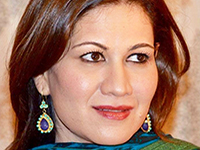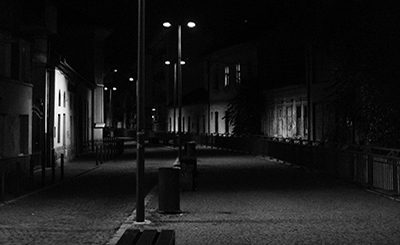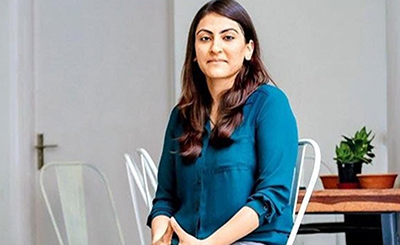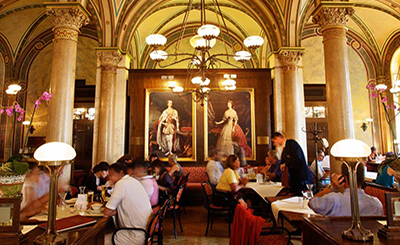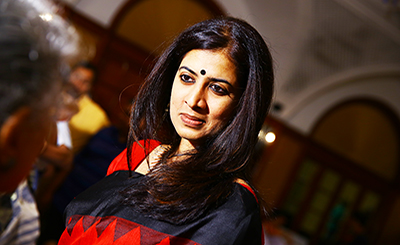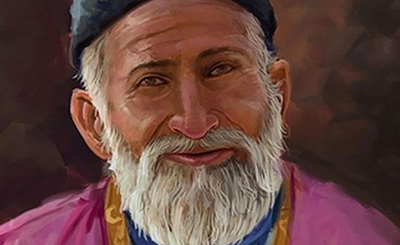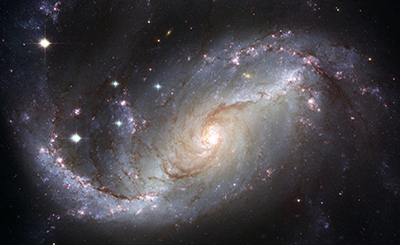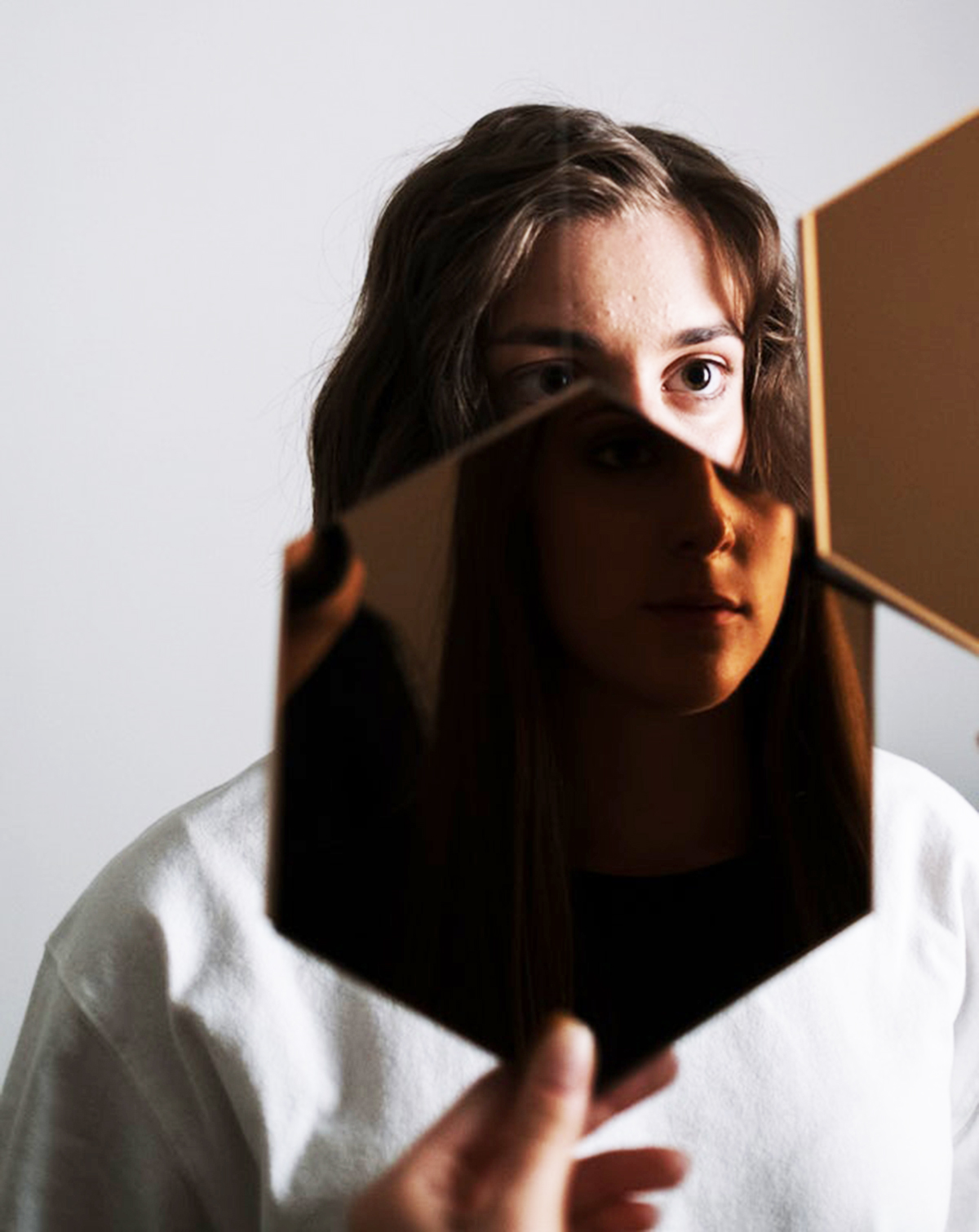
How I came to see that being split is a human condition, that we are all made of pieces hungering to become whole, like the dazzling shards of a “sheesh mahal” ceiling
Seven weeks before my wedding day, half my face became paralyzed. No matter how much I willed my face into a smile or frown, half my face remained creaseless, still as stone. It was an attack of facial palsy, resulting likely from a viral infection. There was no cure. My bridal jewelry had arrived that week and my mother wanted me to try it on. There I sat, at her dressing table, holding a paisley medallion of rubies and gold, that sits on the forehead, hanging from a string of small beads. This “tika,” a traditional bride’s jewel, really my favorite of all the pieces, is crafted as a centerpiece, shimmering on the forehead where the mystic “inner eye” resides — the noblest part of the head we prostrate in Muslim prayer. To me, on the eve of separation from my parental home, the tika was symbolic of selfhood, of a refinement of perception or the aspiration thereof — in preparation to take on life as an independent adult. Now, as I held it up to my forehead, it divided my face into two: one, animated with emotion, tremulous, the other completely detached and motionless. Facial symmetry is not a matter of deliberation or consciousness; it is simply subordinate to a particular neurological sub-system, one that was malfunctioning. When I cried, tears came from only one eye.
In the days that followed, my mother gave me saffron tea and vitamins, taught me face yoga, took me for therapy at the Army Hospital in Peshawar where they tried to wake up my muscles by giving small electric shocks to the affected side of my face. When the physiotherapist, dressed in his military uniform, heard that my wedding was just around the corner, he was visibly saddened and he told me in the kindest voice to not give up.
Seeing myself in the mirror, split in half, was one thing, but being unable to form audible words with my partially immovable mouth while teaching creative writing — a course that continued up until a fortnight before marriage — was even more painful. Talking to my students about coaxing the spirit and polishing the craft led me to consider the poignant dynamics between voice and visibility, authority, work, worth, spirit, silencing and invisibility.
Fortunately, by our wedding day, the palsy resolved; the face in the ceremonial “Arsi Masaf” or mirror-showing to the bride and groom — was whole, but the memory of my split face became an emblem for my new existence: I saw that I had become split by marriage, migration, and later childbirth, multiple citizenships and contrary attachments in a time of war. More importantly, I saw that being split is a human condition, that we are all made of pieces hungering to become whole, like the dazzling shards of a “sheesh mahal” ceiling. And, that it is not only possible to carry contradictory parts within and find beauty in unresolved spaces, but the burns from their friction make for an intellectually and spiritually challenging and robust existence.
In my latest book Comb, a hybrid memoir, I say: “From the cusp dividing countries and tongues, and from the cusp of divided selves, I write.”
My first book, Baker of Tarifa, reimagined a time and place defined by cusps, but also by legendary collaborations — where the three Abrahamic peoples and three continents came together in a civilizational efflorescence so great that it became known as a golden age, a bridge between antiquity and modernity. This was the story of Al Andalus or Muslim Spain that I wrote as a series of poems in the voices of figures — historical and fictional — living in different eras of a near millennium of “La Convivencia” or peaceful coexistence in Spain under Muslim rule. Each of these characters in the book — philosophers, calligraphers, gardeners, governors, seamstresses, scribes — carries fissured multiplicities within that make them transcendent, releasing them from their period of history and making them relevant to us. The central metaphor of the book — baking bread in a “furn,” (Arabic term for a communal oven) — pays homage to the idea of welcoming diversity: these neighborhood ovens were used to bake dough made in homes of Muslims, Jews, Christians and others for centuries, and to me, they are a symbol of disparate parts coming together to form a peaceable whole.
Whereas the cusp represents fissures in personal identity as well as political conflicts and territorial borders between countries, cosmopolitanism, in its truest spirit allows us to accept all in one space, despite some irreconcilable differences. I find in the fissured couplets of the ghazal form a marvelous example of generosity of spirit and intellectual dexterity. As I state in my book Ghazal Cosmopolitan: “The ghazal, in its structure as well as its sensibility, not only allows contraries to cohabit but in the best compositions, it makes a demand to frame polarity in the same space. Once the matla, the opening couplet introduces the refrain (or radif), the reader expects two things: one, that each successive couplet will be locked in by the same phrase/word/image of the radif, and two, that a wild freedom of perspective will be offered like a new puzzle piece that astonishes by fitting the given radif as perfectly as the previous one.” The ghazal fuses the old with the new, the friend with the stranger — reflecting, refracting, building its sheesh mahal of couplets that shine their own light but are even more resplendent when seen as a whole.
Researching and reflecting on history has taught me that the “clash of civilizations” narrative that was gaining currency in my college years in the US as well as the new puritanical movements of Muslims that created divides were dangerously misguided and have resulted in decades of violence and war.
Without a doubt I have suffered distress as a Muslim — especially as a mother of young children — not only from the global climate of war but also the devastating tensions arising from legitimized hate speech. I write about Islamophobia, mostly in my book Kohl & Chalk, contextualizing the historic shifts in global power I have witnessed, trying not to lose sight of the suffering of others all around us. Kohl and Chalk is a series of autobiographical poems that critique the “us or them” mindset, the tragic loss of nuance in global discourse. The cusps in this case are the unfortunate boundary walls built high as prisons of the mind and soul, but also our teachable, beautiful scars.
In my new memoir, Comb, I revisit my childhood in Peshawar, a frontier city, a city on the cusp of empires. I recall the sights, sounds and stories of daily life in Comb, but also touch upon the geopolitical conflicts of the Khyber region as the great threshold of South Asia — the cultures of encounter it fostered over thousands of years, and the impression that its mythos made on me as a budding poet.
Mirror-gazing, I’ve learnt, gives only a reflection, a reductive story, not the whole story, as in the case of my palsied face — and yet, in its truth-telling shadowed by enigmas, there are compelling seductions to unravel the whole truth. To use the metaphor of combs and combing from my book, I believe there is much to be gained from bringing the fragmentation within and without into clearer focus by combing through our unique histories, combing through both, the traumas of the past, and the cherished traditions, finding the best of our cultural heritage, and then to calibrate our goals as participants of the larger world in order to nurture the possibility of a better future. In the past year, throughout which, each of us has battled the ravages of the pandemic, in one way or another, the urgency of sharing responsibility has become even more apparent. If poetry wields any power, it lies in summoning the imagination to expand empathy; poetry may disarm us so that we ultimately wish for others what we wish for ourselves. It may make the cusps between us luminous with genuine humanity. I’ll end with a verse from a ghazal by Iqbal:
May the spring breeze blow again, may Iqbal offer a ghazal
If a bud, may it become a rose, if a rose, may it become a rose garden
(This essay was part of May 2021 issue, which was delayed due to the pandemic and released on August 3)
More from The Byword
Comments
*Comments will be moderated
I hesitate to write my comment because I'm not certain if anything I write will adequately express how much I was moved by this piece, to say the least. So I'll just say thank you to the author for sharing. I have a fondness for mirrors as decorative pieces but don't look into them anymore...they have made many conflicting revelations to me in my younger days! Hopefully I'm moving beyond those now, a little mellowed and matured with age.
Kavita Ezekiel Mendo
Aug 5, 2021 at 18:19



